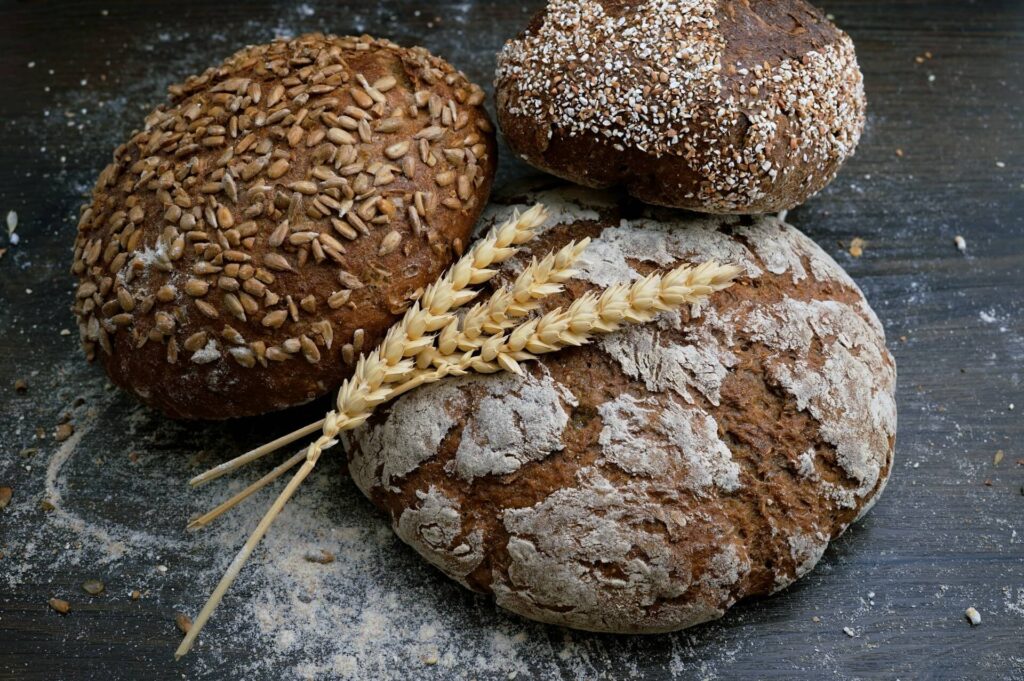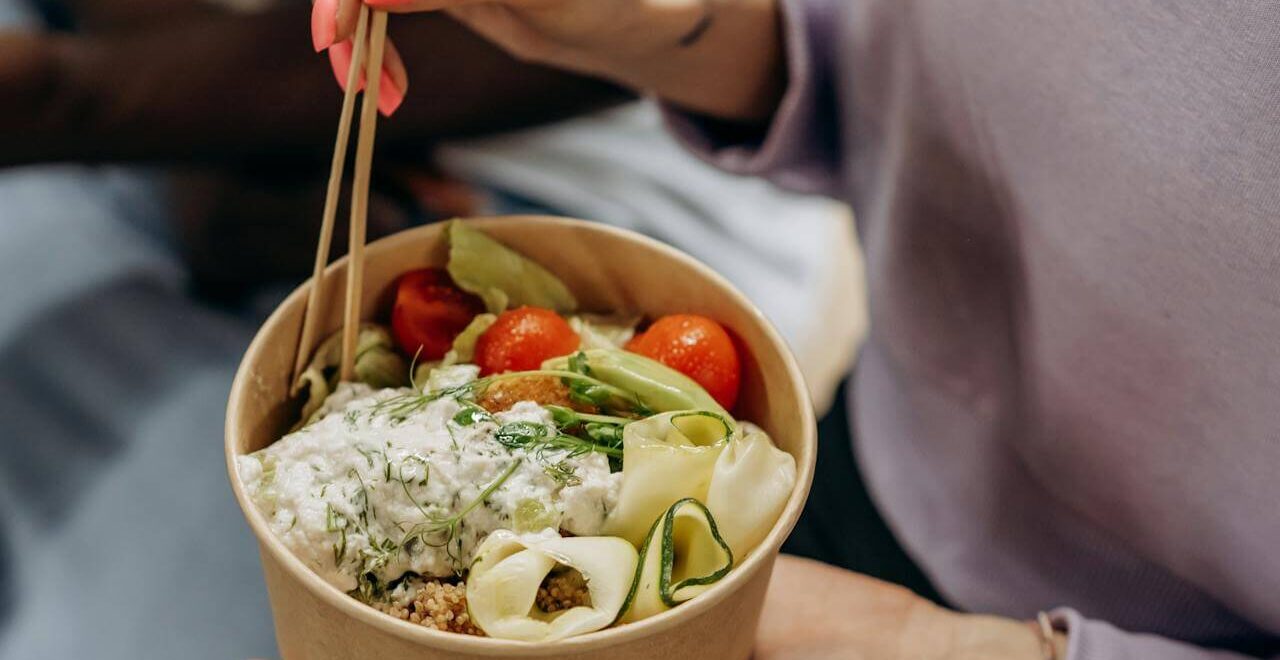Does it feel like IBS symptoms are controlling your life? If so, you’re not alone. About 10-15% of people suffer from irritable bowel syndrome (IBS).
Between pain, bloating, gas, diarrhea, and constipation, irritable bowel syndrome can be frustrating and embarrassing. You may dread mealtimes because you never know what will set off your IBS. Or you may pop laxatives like they’re candy just to ease your discomfort.
If you’re tired of tummy trouble derailing your life, help is here. Keep reading to learn 7 natural ways to calm IBS naturally.
What is Irritable Bowel Syndrome (IBS)?
Irritable bowel syndrome (IBS) is a digestive disorder that affects between 25 to 45 million Americans.

Symptoms of IBS include abdominal pain, bloating, and excessive gas, as well as diarrhea, constipation, or both.
There are three types of IBS:
- IBS with constipation (IBS-C) is marked by hard, lumpy stools.
- IBS with diarrhea (IBS-D), which causes loose, watery stools.
- Mixed IBS (IBS-M), which as you may have guessed, includes a mix of constipation and diarrhea.
Scientists aren’t exactly sure what causes IBS.
Some say it’s due to poor communication between the gut and brain. Others say it may be due to overactive nerves in the gut. Infections, food intolerances, and imbalances in gut bacteria may also play a role.
Many turn to anti-diarrhea medication, laxatives, or antidepressants to relieve IBS symptoms. The problem is these medications come with a long list of side effects.
Luckily, there are many holistic ways to treat IBS.
Ways to Ease IBS Symptoms Naturally
Before we dive in, I want to be clear. There is no one-size-fits-all when it comes to IBS. What works for one person won’t work for another. The key is to experiment until you find what works for YOU.
With that said, here are 7 natural remedies to calm IBS down:
1 – Avoid trigger foods

Around 85-95% of people say their IBS symptoms get aggravated by certain foods. So if your symptoms ramp up after meals, it’s not your imagination.
Trigger foods are different for everyone. Some of the most common offenders are gluten, dairy, caffeine, alcohol, fried foods, processed foods, and sugar alcohols (e.g. erythritol).
Keeping a food journal is one easy way to track any troublesome foods. Once you identify your trigger foods, do your best to avoid them, at least temporarily. You can always try adding them back in after your gut is more balanced.
2 – Try the low FODMAP diet
FODMAPS stands for fermentable oligosaccharides, disaccharides, monosaccharides, and polyols (quite the mouthful, I know!). In short, they’re a type of carbohydrate that can be tough to digest.

Some foods are high in FODMAPS, others are low. For some people, high FODMAP foods can cause digestive distress.
The low FODMAP diet temporarily restricts high FODMAP foods to allow the gut to heal. It’s proven to help ease IBS symptoms. In fact, one scientific review found the low FODMAP diet improved IBS symptoms like abdominal pain and bloating better than any other intervention.
The diet has three phases. Foods are reintroduced gradually to pinpoint any foods that may be causing tummy troubles.
High FODMAP foods include:
- Wheat
- Beans and legumes
- Some vegetables, including asparagus, leeks, onions & garlic
- Certain fruits like apples, pears, mangos & cherries
- Some dairy products including milk, yogurt, and soft cheeses
- Many sweeteners including honey, agave syrup, high fructose corn syrup, molasses, and sugar alcohols (e.g. xylitol, sorbitol, erythritol)
Low FODMAP foods include:
- Meat, fish, and eggs
- Tofu and tempeh
- Almond milk
- Most nuts and seeds (except cashews and pistachios)
- Gluten-free grains like rice, quinoa, millet & buckwheat
- Many vegetables including kale, carrots, spinach, cucumbers, bell peppers & zucchini
- Some fruits including oranges, pineapple, kiwi & cantaloupe
To learn more about the low FODMAP diet, check out this article.
3 – Eat more soluble fiber
If constipation is one of your IBS symptoms, you may want to up your soluble fiber. Soluble fiber forms a gel when mixed with water. This softens your stools and makes them easier to pass.
Foods high in soluble fiber include:
- Psyllium powder
- Avocados
- Flaxseed
- Oats
- Bananas
- Apples
- Broccoli
- Sweet potatoes
- Brussels sprouts
- Cooked carrots
Keep in mind that everyone’s different. For some people, high-fiber foods may aggravate irritable bowel syndrome. So listen to your body and add it in slowly.
4 – Mindfulness
IBS, like most things, is triggered by stress. That’s where mindfulness comes in. Mindfulness is building awareness of the present moment, without judgment.

Injecting mindfulness throughout your day relaxes your nervous system. This can calm any overactive nerves in the gut that may contribute to irritable bowel syndrome. While mindfulness may sound “woo-woo”, according to science–it works.
One study had irritable bowel syndrome patients participate in an 8-week mindfulness-based stress reduction program. After the 8 weeks, 71% of participants had significant relief from their IBS symptoms. Of all the mindfulness practices, staying in the present moment had the most impact.
So how do you build present-moment awareness? Here are a few ways:
- Practice being the observer of your thoughts, without judgment
- Eat meals mindfully free of distractions (i.e. no phone, computer, or TV)
- Spend time in nature
- Practice meditation
- Do breathing exercises
- Try a body scan
5 – Peppermint oil

If abdominal cramps are part of your IBS picture, you may want to give peppermint a try. Peppermint oil has been a popular digestive remedy for centuries. It’s an antispasmodic, meaning it helps relieve muscle spasms.
Studies show taking peppermint oil capsules with meals reduces irritable bowel syndrome symptoms, especially abdominal pain. But if you’d rather not take capsules, no worries. Try sipping some peppermint tea after meals instead.
6 – Probiotics
Many suspect irritable bowel syndrome is partly due to imbalances in gut bacteria. Enter probiotics. Probiotics replenish friendly bacteria to help balance your gut microbiome. Research shows probiotics may help reduce IBS symptoms including gas, bloating, and abdominal pain.
A diverse microbiome is key to a healthy gut. So ideally, look for a probiotic with a variety of bacterial strains. In particular, look for Lactobacillus acidophilus and Bifidobacteria.
If your IBS symptoms include diarrhea, Saccharomyces boulardii is worth trying. It’s shown to reduce diarrhea and improve the consistency of stool.
Fermented foods can also help repopulate the gut with good bacteria. So consider adding fermented foods like sauerkraut, kimchi, yogurt, miso, or kombucha to the menu.
7 – Acupuncture
Acupuncture is an alternative health treatment that shows promise for irritable bowel syndrome. While the evidence is mixed, many studies show acupuncture can help relieve IBS symptoms, including abdominal pain, bloating, and constipation.

Many believe this is due to acupuncture’s ability to calm the nervous system. This may, in turn, calm the gut, thanks to the gut-brain connection. At Anchored in Health, acupuncture is one of our go-to tools for IBS relief.
Get Relief from IBS with Acupuncture in Orland Park, IL
If you live in the Chicago area and are tired of IBS symptoms disrupting your life, Anchored in Health is here to help.
Our talented acupuncturist can customize treatment to relieve your pain and discomfort – so you can get back to living life again!
Ready to experience firsthand how acupuncture can help calm IBS? If so, follow these steps:
- Contact us with any questions.
- Book your first acupuncture treatment here.
- Get relief from IBS and start enjoying life again!
Other Health and Wellness Services Offered at Anchored in Health in Orland Park, IL
At Anchored in Health, we’re committed to helping you live your healthiest life. That’s why we offer a variety of holistic health services to help you feel your best. This includes chiropractic care, functional medicine, massage therapy, and the Shape ReClaimed program.
We even offer functional assessments like thermography and genetic testing. Contact us to find out how we can help you regain your health, so you can stop surviving, and start thriving.
Disclaimer: The information provided on this blog is for educational and informational purposes only and is not intended to diagnose, treat, cure, or prevent any disease. The content is not a substitute for professional medical advice, diagnosis, or treatment. Always seek the guidance of a qualified healthcare provider with any questions you may have regarding your health or a medical condition.
Reading this blog does not establish a doctor-patient relationship between you and Anchored In Health or any of its practitioners. Reliance on any information provided in this blog is solely at your own risk. For medical concerns, always consult a licensed healthcare provider.
References
- https://gi.org/topics/irritable-bowel-syndrome/
- https://aboutibs.org/what-is-ibs/facts-about-ibs/
- https://my.clevelandclinic.org/health/diseases/4342-irritable-bowel-syndrome-ibs
- https://journals.lww.com/ajg/Fulltext/2021/01000/ACG_Clinical_Guideline__Management_of_Irritable.11.aspx
- https://gut.bmj.com/content/71/6/1117
- https://onlinelibrary.wiley.com/doi/10.1111/nmo.13828
- https://bmccomplementmedtherapies.biomedcentral.com/articles/10.1186/s12906-018-2409-0
- https://www.ncbi.nlm.nih.gov/pmc/articles/PMC9116469/
- https://www.ncbi.nlm.nih.gov/pmc/articles/PMC4125647/

[…] https://drcindyjakubiec.com/7-natural-remedies-for-ibs-you-need-to-try/ – 7 Natural Remedies for IBS You Need to Try – Orland Park, IL 60467 […]